Methylprednisolone 1000mg Injection
$105.00 – $280.00Price range: $105.00 through $280.00
| Pack Size | Price | Price / Unit | Quantity | |
|---|---|---|---|---|
| 3 Packs | $105.00 | $35.00/ unit | ||
| 5 Packs | $150.00 | $30.00/ unit | ||
| 10 Packs | $280.00 | $28.00/ unit |
Looking for bulk / B2B pricing? | Send Inquiry |

| SKU | 11530 |
| Manufacturer | Shinepro Life Sciences Pvt. Ltd. |
| Categories | Inflammation |
| Delivery Time | 10 - 14 Working Days |
| Strength | 1000mg |
Introduction to Methylprednisolone 1000mg Injection
Methylprednisolone 1000mg injection is a potent corticosteroid used to treat a variety of inflammatory and autoimmune conditions. It belongs to the class of medications known as glucocorticoids, which mimic the effects of naturally occurring hormones produced by the adrenal glands.
The primary mechanisms of methylprednisolone involve suppressing inflammation and immune responses by inhibiting the production of inflammatory chemicals and reducing the activity of immune cells.
However, due to its potent effects, methylprednisolone 1000mg injection is typically reserved for short-term use in acute situations or as a bridge therapy until oral medications can be effective. Prolonged use or high doses can lead to significant side effects, including immune suppression, increased susceptibility to infections, osteoporosis, and metabolic disturbances.
Uses of Methylprednisolone 1000mg
Methylprednisolone 1000mg is a high-dose corticosteroid medication primarily used in the management of severe inflammatory conditions and certain medical emergencies. Here are some common uses of Methylprednisolone 1000mg Injection:
- Severe Allergic Reactions
- Autoimmune Diseases
- Acute Exacerbations of Multiple Sclerosis (MS)
- Severe Asthma
- Inflammatory Bowel Disease (IBD) Flares
- Organ Transplant Rejection
- Cancer Therapy
How Does Methylprednisolone 1000 mg Injection Works?
Methylprednisolone 1000mg injection is a powerful corticosteroid that works by reducing inflammation and suppressing the immune system. When injected, it enters the bloodstream and rapidly targets the affected areas, decreasing the activity of the immune system. This makes it effective in treating conditions where the body’s immune response is causing harm, such as in autoimmune diseases or severe allergies.
The medication works by inhibiting the production of certain chemicals in the body that trigger inflammation, pain, and swelling. It also stabilizes cell membranes and limits the release of inflammatory cells, which helps reduce damage to tissues and organs. This action makes it effective in managing conditions like arthritis, asthma, and inflammatory bowel diseases.
Side Effects of Methylprednisolone 1000mg
Common Side Effects
- Hyperglycemia
- Fluid Retention
- Gastrointestinal Disturbances
- Insomnia
- Increased Appetite
- Muscle Weakness
- Headache
Serious Side Effects
- Diabetes
- Hypertension
- Adrenal Suppression and Adrenal Crisis
- Osteoporosis and Bone Fractures
- Psychiatric Effects
- Cataracts and Glaucoma
Dosage of Methylprednisolone 1000mg
The dosage of Methylprednisolone 1000mg Injection typically depends on the specific condition being treated, the patient’s medical history, and the healthcare provider’s assessment of the severity of the condition. Methylprednisolone is a potent corticosteroid, and high doses such as 1000mg are usually reserved for certain medical emergencies or severe inflammatory conditions requiring intensive therapy.
Other Dosage of Methylprednisolone
How To Manage Side Effects?
Managing the side effects of Methylprednisolone 1000mg injection involves a combination of preventive measures, monitoring, and appropriate interventions. Here’s how to manage common side effects:
- Monitor blood glucose levels regularly
- Maintain a healthy diet
- Limit salt intake
- Talk to your doctor
- Practice good hygiene
- Ensure adequate calcium and vitamin D intake
- Take the medication with food or after meals
- Use gentle skin care products to reduce irritation
- Regular eye exams are important
Warning & Precautions
Methylprednisolone 1000mg injection, being a potent corticosteroid medication, carries certain warnings and precautions that need to be considered before administration. Here are some important warnings and precautions associated with Methylprednisolone 1000mg injection:
1. Infections:
- Corticosteroids like methylprednisolone can suppress the immune system, increasing the risk of infections. Patients should be monitored for signs of infection during treatment, and caution should be exercised when administering to patients with a history of chronic or recurrent infections.
2. Immunosuppression:
- Methylprednisolone can cause immunosuppression, which may lead to reactivation of latent infections or increased susceptibility to opportunistic infections. Patients should be screened for latent tuberculosis before starting treatment, and appropriate antimicrobial prophylaxis may be considered in high-risk individuals.
3. Glucose Intolerance:
- Methylprednisolone can cause hyperglycemia and exacerbate pre-existing diabetes mellitus. Blood glucose levels should be monitored regularly in diabetic patients or those with glucose intolerance. Adjustments to antidiabetic medications may be necessary during treatment with methylprednisolone.
4. Fluid and Electrolyte Imbalance:
- Methylprednisolone can cause sodium and water retention, leading to fluid retention, edema, and hypertension. Potassium loss and hypokalemia may also occur. Patients should be monitored for signs of fluid overload or electrolyte disturbances, especially in those with heart failure or renal impairment.
5. Psychiatric Effects:
- Corticosteroids like methylprednisolone can cause mood changes, including irritability, agitation, anxiety, and depression. Patients with a history of psychiatric disorders should be monitored closely for exacerbation of symptoms, and psychiatric support may be needed.
Safety Advice
When considering the safety of Methylprednisolone 1000mg injection, it’s important to adhere to safety advice provided by healthcare professionals. Here’s a comprehensive safety guide:
- Follow Medical Instructions
- Monitor Blood Sugar Levels
- Avoid Infections
- Do Not Abruptly Stop the Medication
- Be Aware of Side Effects
- Monitor Bone Health
- Use with Caution in Pregnancy or Breastfeeding
- Limit Alcohol Consumption
FAQs – Frequently Asked Questions
1. Is Methylprednisolone Injection safe during pregnancy or breastfeeding?
Ans. The use of Methylprednisolone Injection during pregnancy or breastfeeding should be carefully considered, weighing the potential benefits against the risks to the fetus or infant. It should only be used if deemed necessary by a healthcare provider, and the lowest effective dose should be used for the shortest duration possible.
2. Can Methylprednisolone Injection interact with other drugs?
Ans. Yes, Methylprednisolone Injection can interact with other medications, including certain antibiotics, antifungals, anticoagulants, antidiabetic drugs, and vaccines. Patients should inform their healthcare provider about all medications, supplements, and herbal products they are taking before receiving Methylprednisolone injection.
3. What if I miss a dose of Methylprednisolone Injection?
Ans. Since Methylprednisolone Injection is typically administered by healthcare professionals, missed doses are unlikely. However, if a dose is missed or delayed, patients should follow the instructions provided by their healthcare provider and adhere to the prescribed treatment schedule.
4. Is it safe to drive or use machinery after receiving Methylprednisolone Injection?
Ans. Patients may experience dizziness, drowsiness, or other side effects that may impair their ability to drive or operate machinery after receiving Methylprednisolone Injection. It is advisable to avoid such activities until the effects of the medication are known.
| Pack Size | 10 Packs, 3 Packs, 5 Packs |
|---|---|
| Price/Unit | $28/unit, $30/unit, $35/unit |
Be the first to review “Methylprednisolone 1000mg Injection” Cancel reply
Related Products
No related Products Found

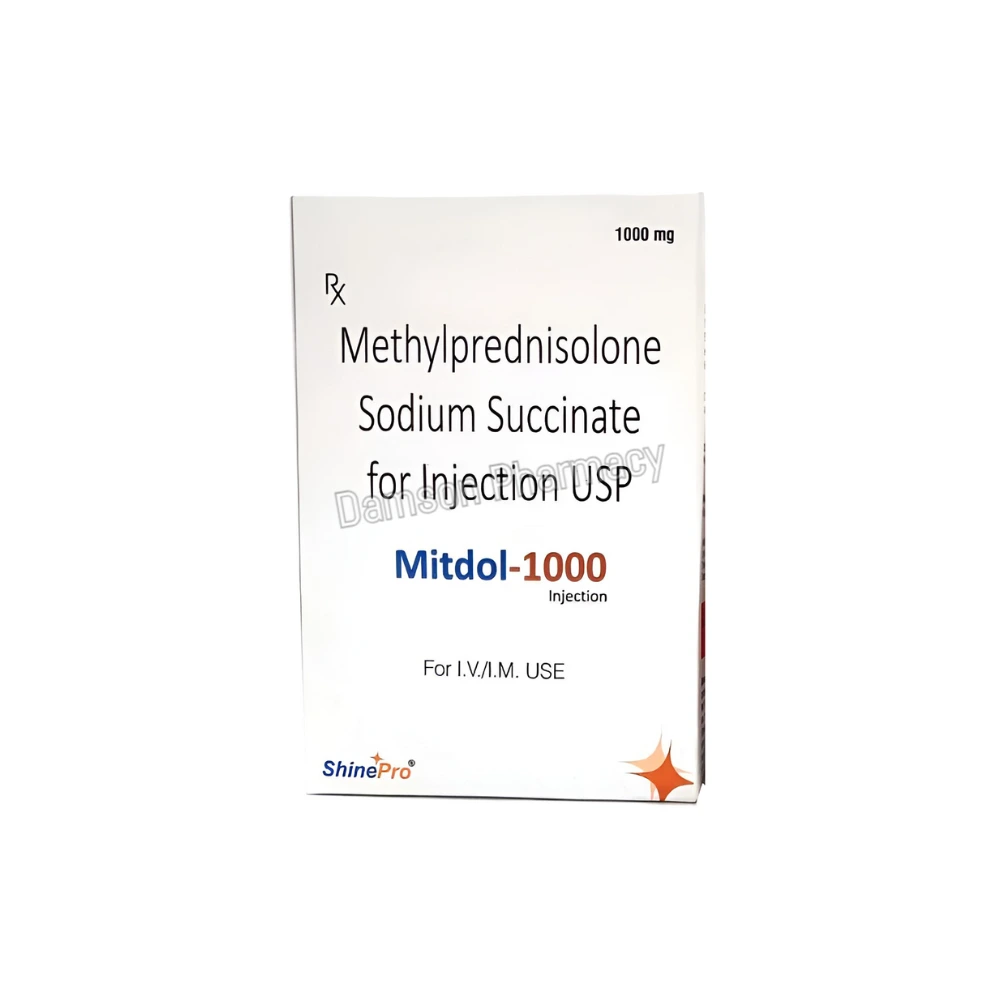
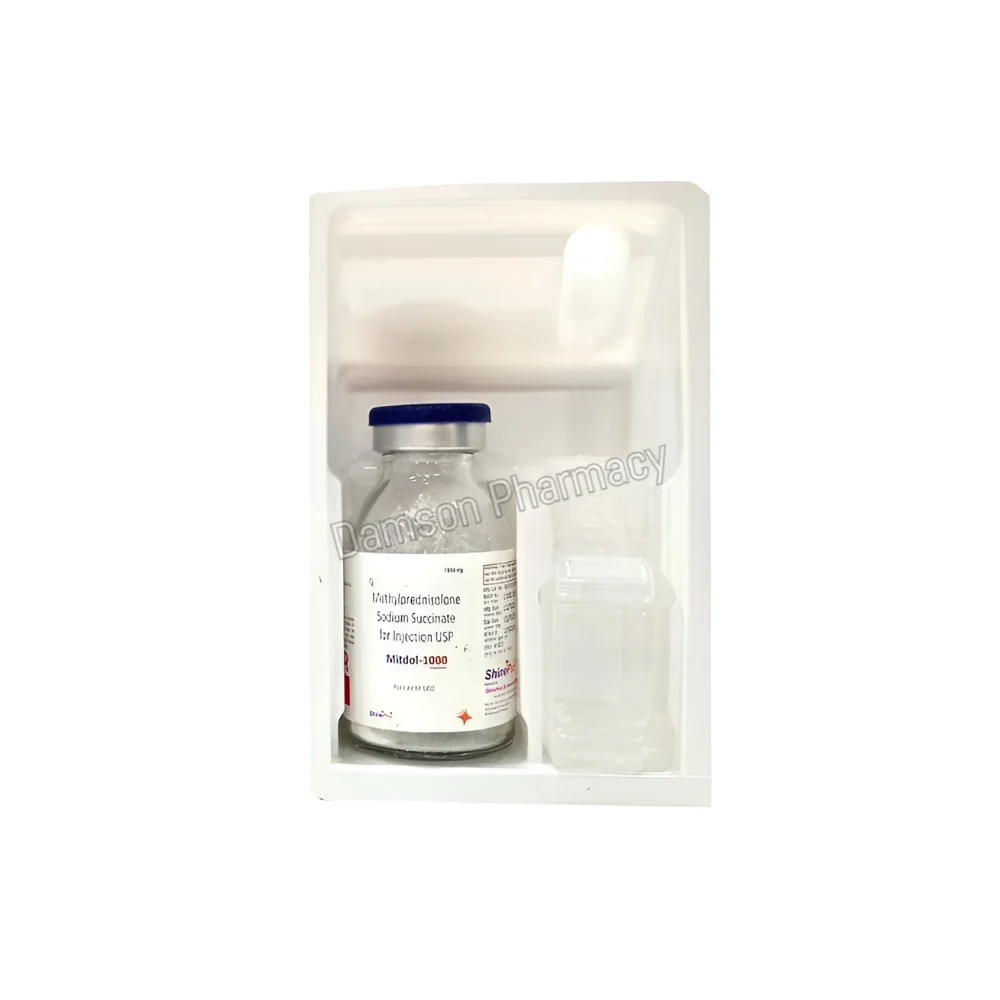
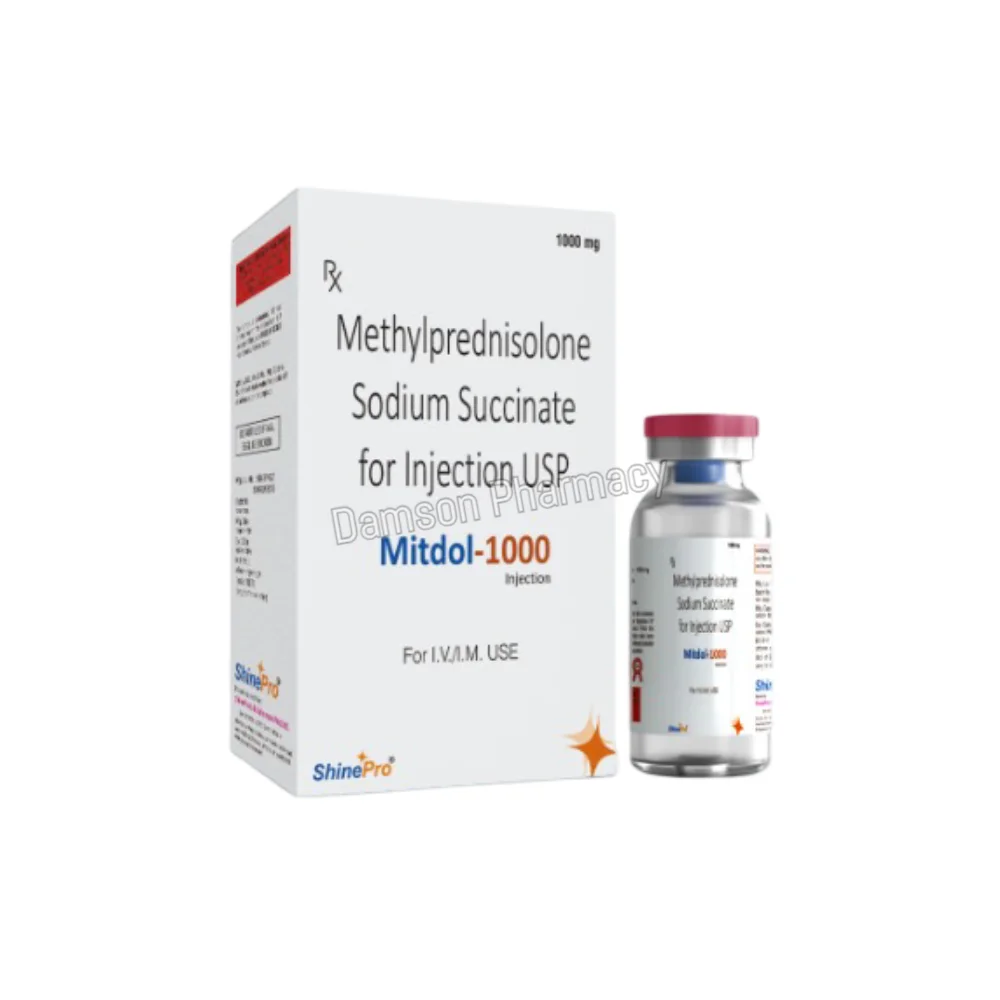
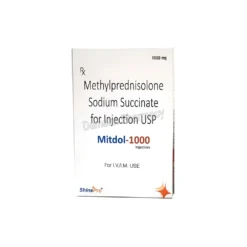
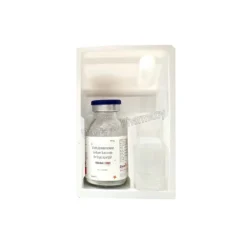
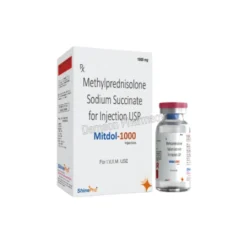
Reviews
There are no reviews yet.